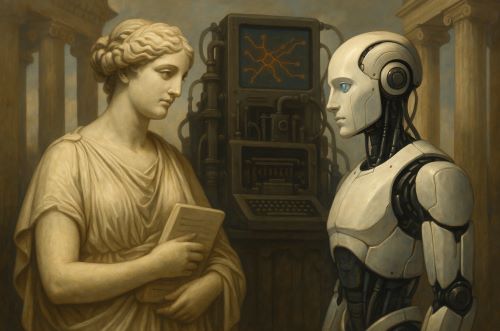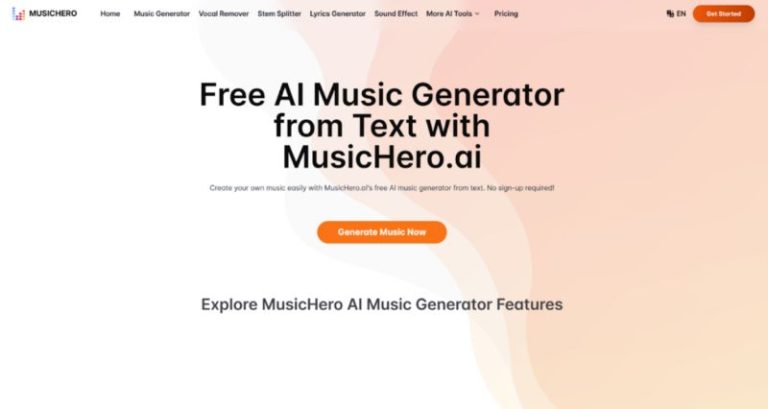

In ancient Greece, the Muses stood at the gateway of human inspiration. Calliope gave us epic poetry. Clio, the keeper of history. Terpsichore moved our bodies with dance, while Erato stirred hearts through love songs. These goddesses weren’t just symbols—they represented a worldview: that knowledge and creativity were intertwined, divine, and essential.
Fast-forward to today, and the tools of learning look nothing like they once did. In place of parchment and lyres, we have large language models, intelligent tutors, and generative software. But perhaps, beneath the chrome and code, something old is stirring. In the age of artificial intelligence, we may be witnessing not the end of classical learning—but its return.
What if every Muse had her machine?
An AI for music composition channels Euterpe. Motion-capture choreographers use tools worthy of Terpsichore. GPT-4 drafts speeches with Calliope’s cadence. Text-to-image generators echo Polyhymnia, Muse of sacred verse, giving form to spiritual imagination. AI historians reconstruct ancient voices—Clio reborn in digital threads.
This isn’t mere novelty. What we’re seeing is a democratization of the arts and sciences that ancient philosophers could only dream of. Where the Muses once inspired a select few—those with access to formal education, patronage, or sacred status—today’s AI tools are unlocking entire disciplines for everyday learners.
But access isn’t enough. The true gift of AI lies not in automation, but amplification: helping us learn faster, think deeper, and create with greater clarity. It’s the difference between copying a painting and learning how to paint in your own style.
That’s where platforms like Coursiv come in. Built for the curious, the career-shifting, and the self-taught, Coursiv leverages intelligent systems to help people learn more intentionally. Whether you’re diving into machine learning, brushing up on digital marketing, or exploring how AI is reshaping communication, Coursiv is structured for how we actually learn in this new world—through conversation, context, and creativity.
Because the truth is, we’re all polymaths now. We toggle between disciplines. We mix code with craft, data with design. And with the right tools, we don’t just consume knowledge—we remix it.
The classical world saw the Muses as companions of the wise. In the 21st century, our companions are machines—but only if we use them wisely. AI won’t replace human curiosity or insight. But it can illuminate them. The question is no longer whether machines can think—it’s whether we can learn to think with them. Explore how Coursiv is building a learning experience worthy of the Muses—adaptive, interdisciplinary, and human-first. The future of knowledge isn’t passive. It’s poetic.


